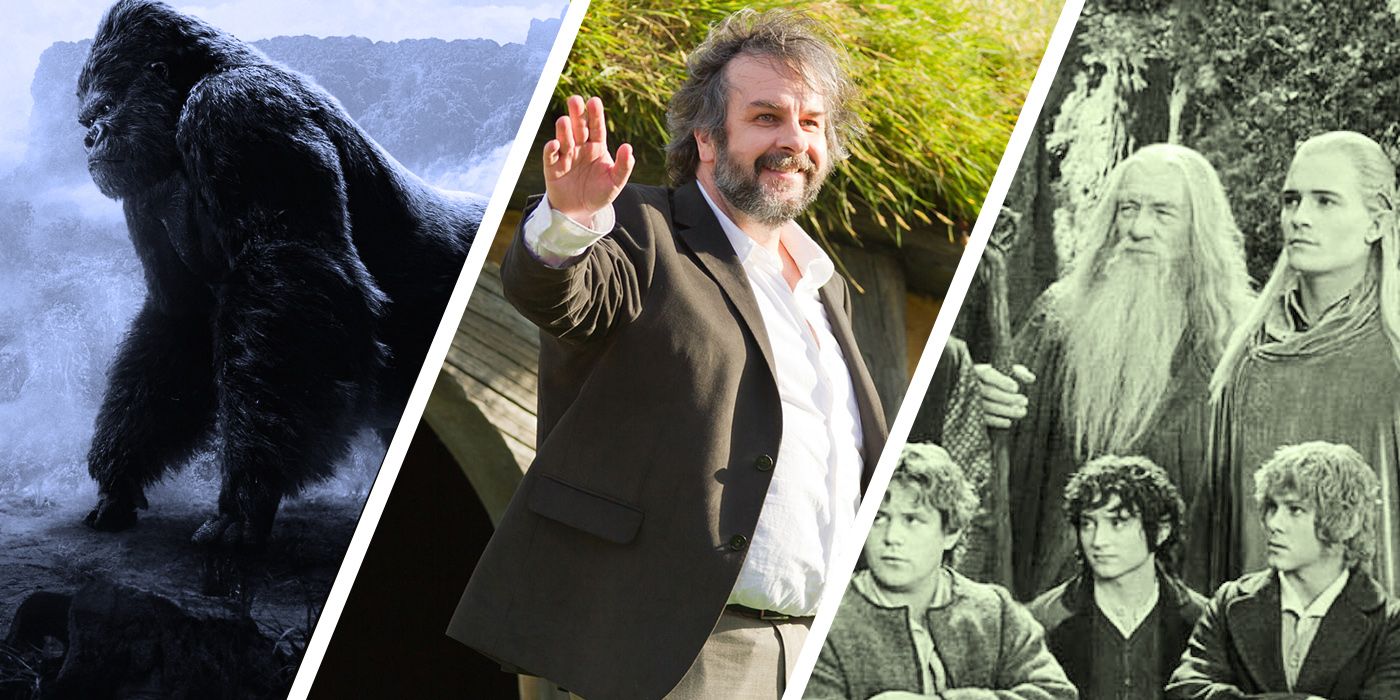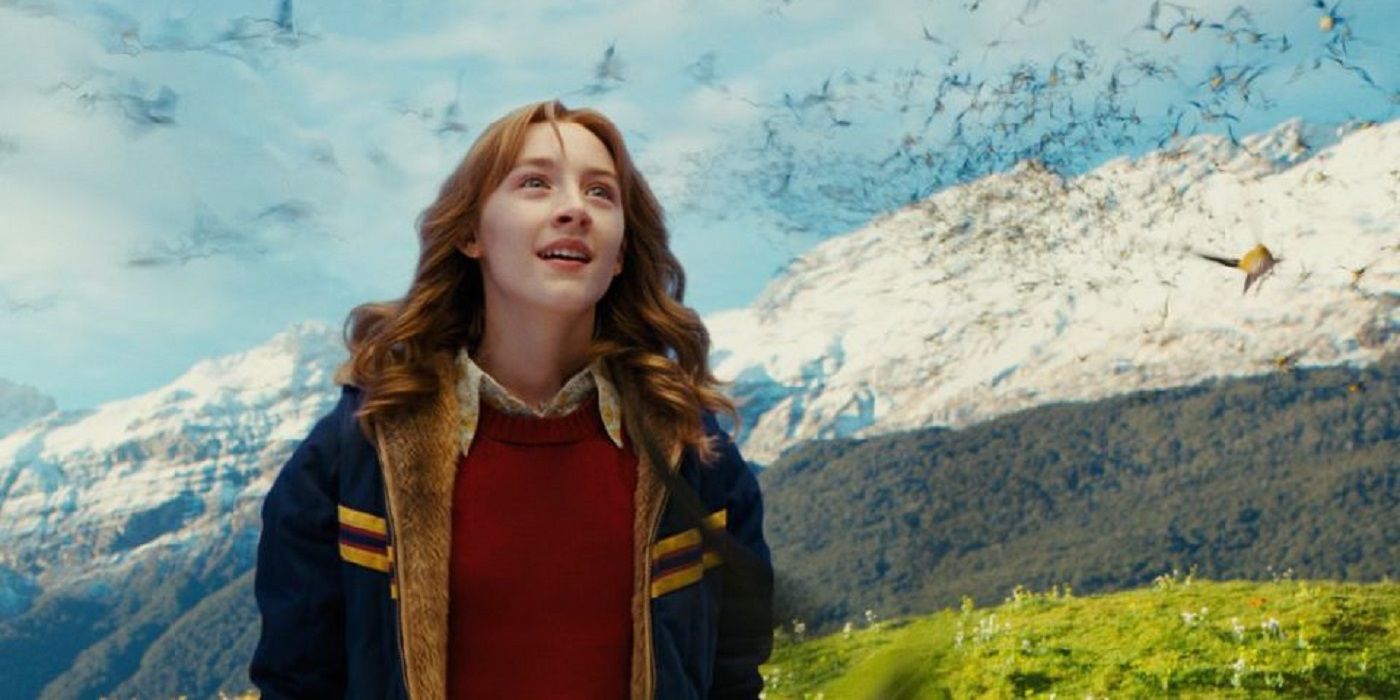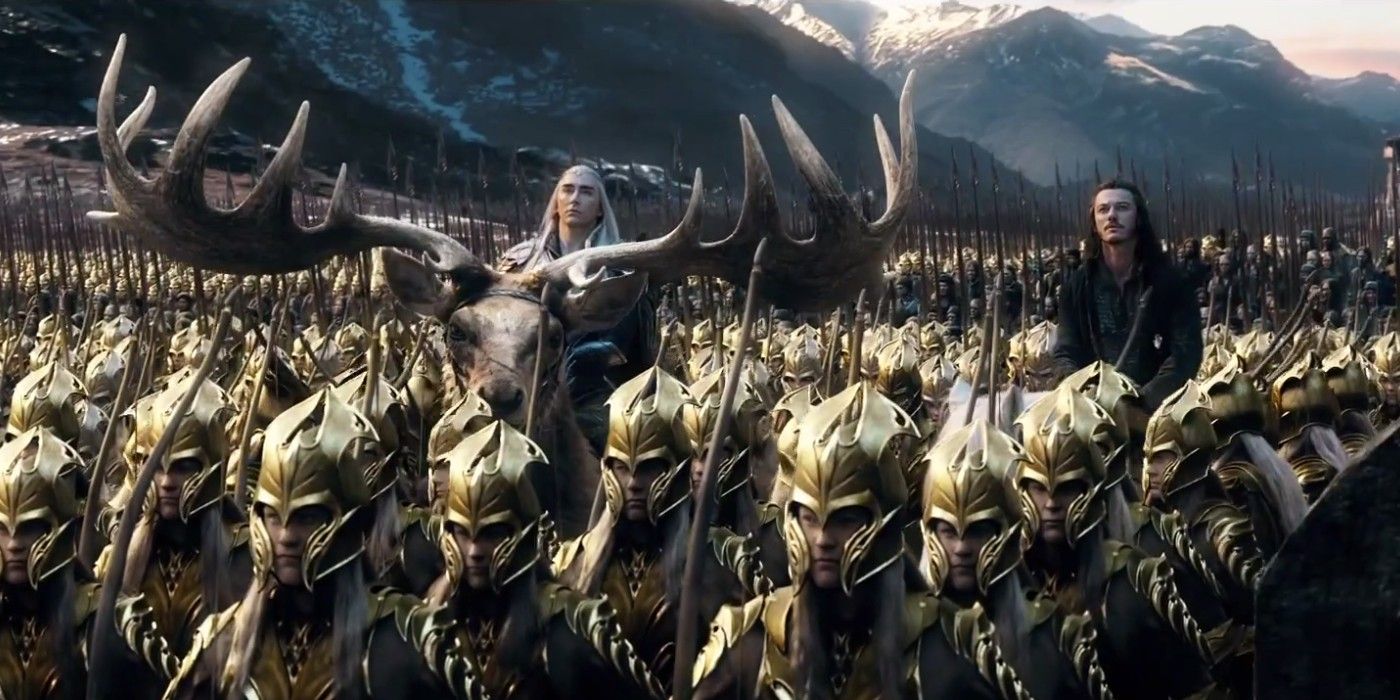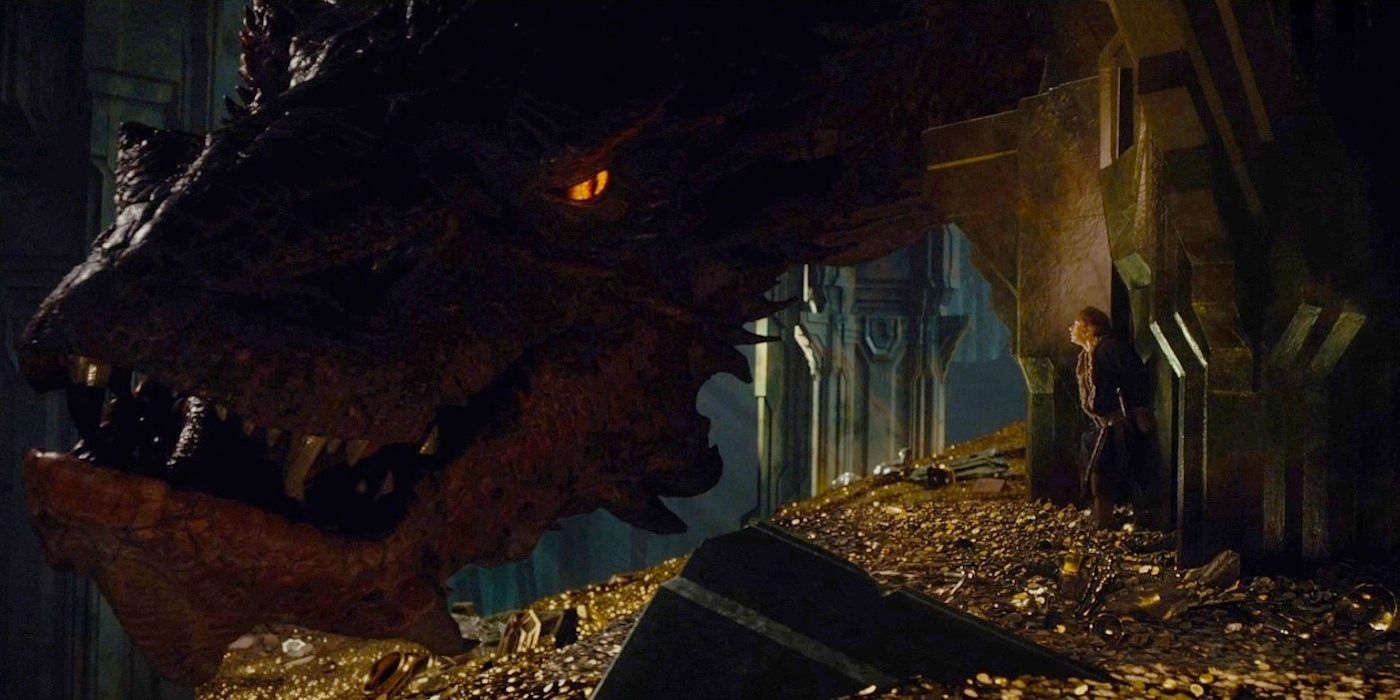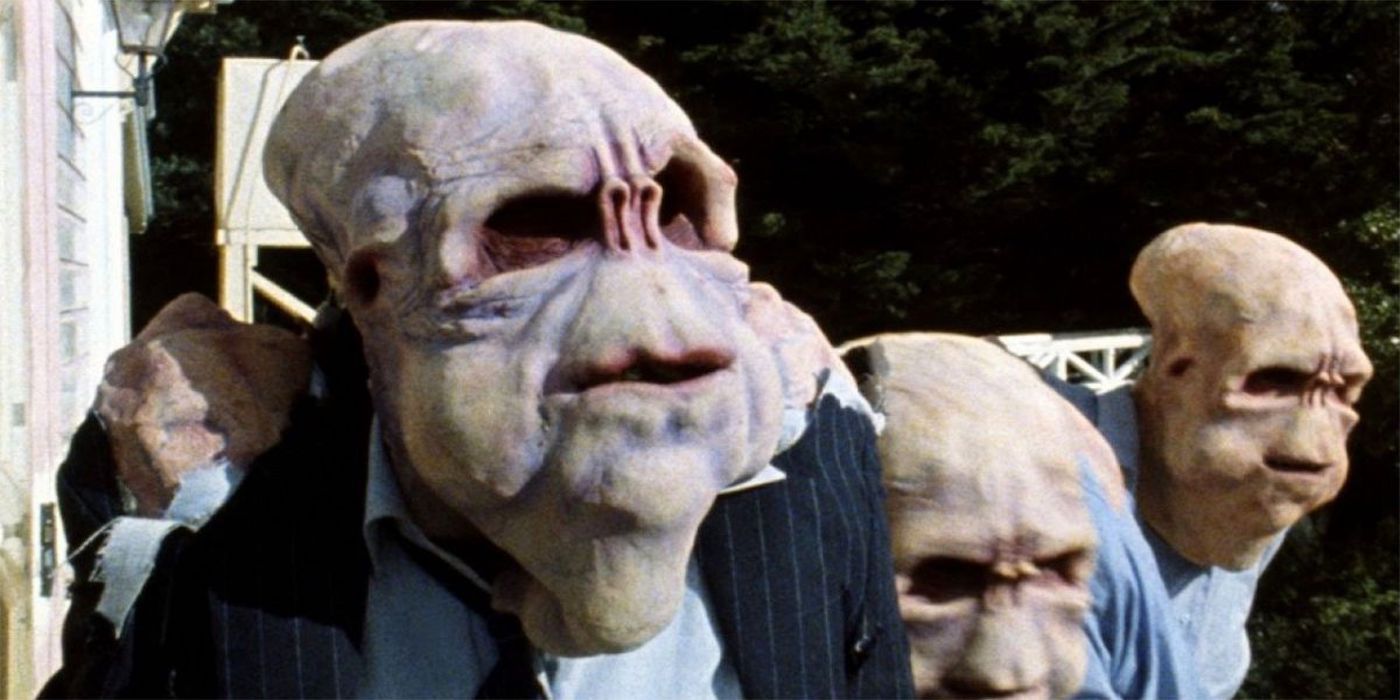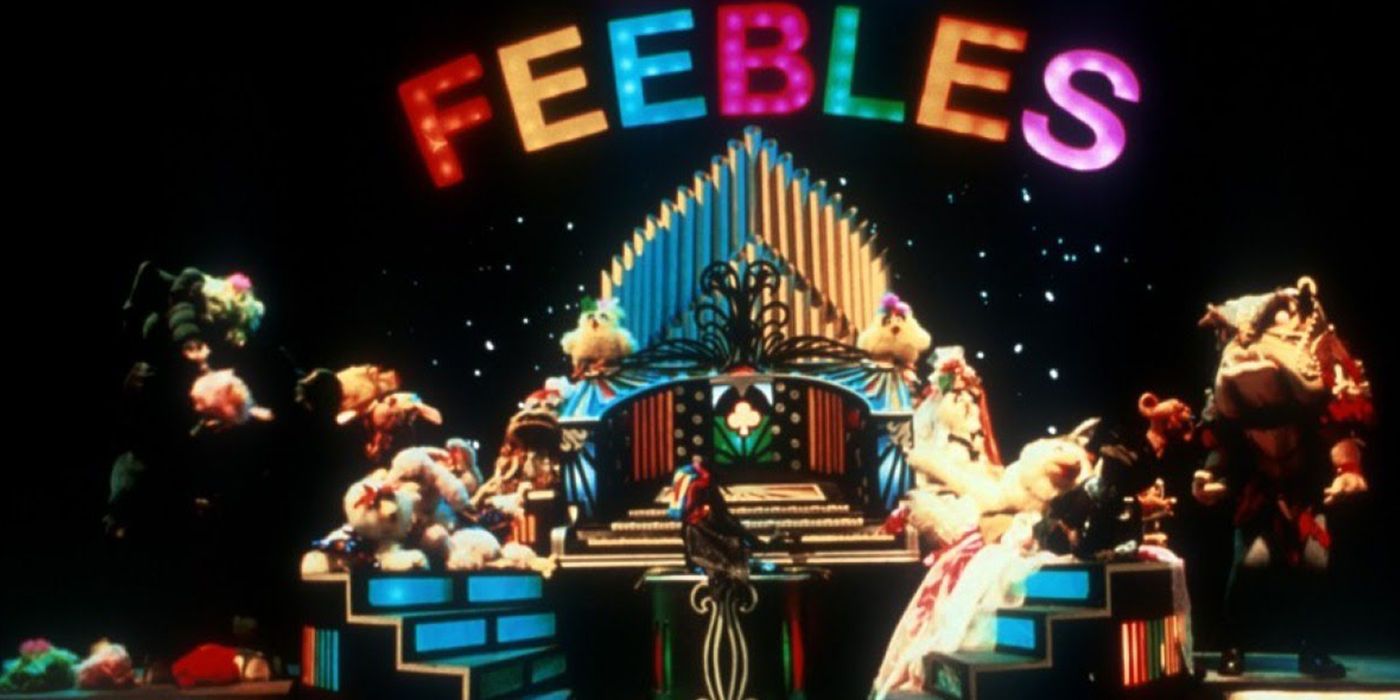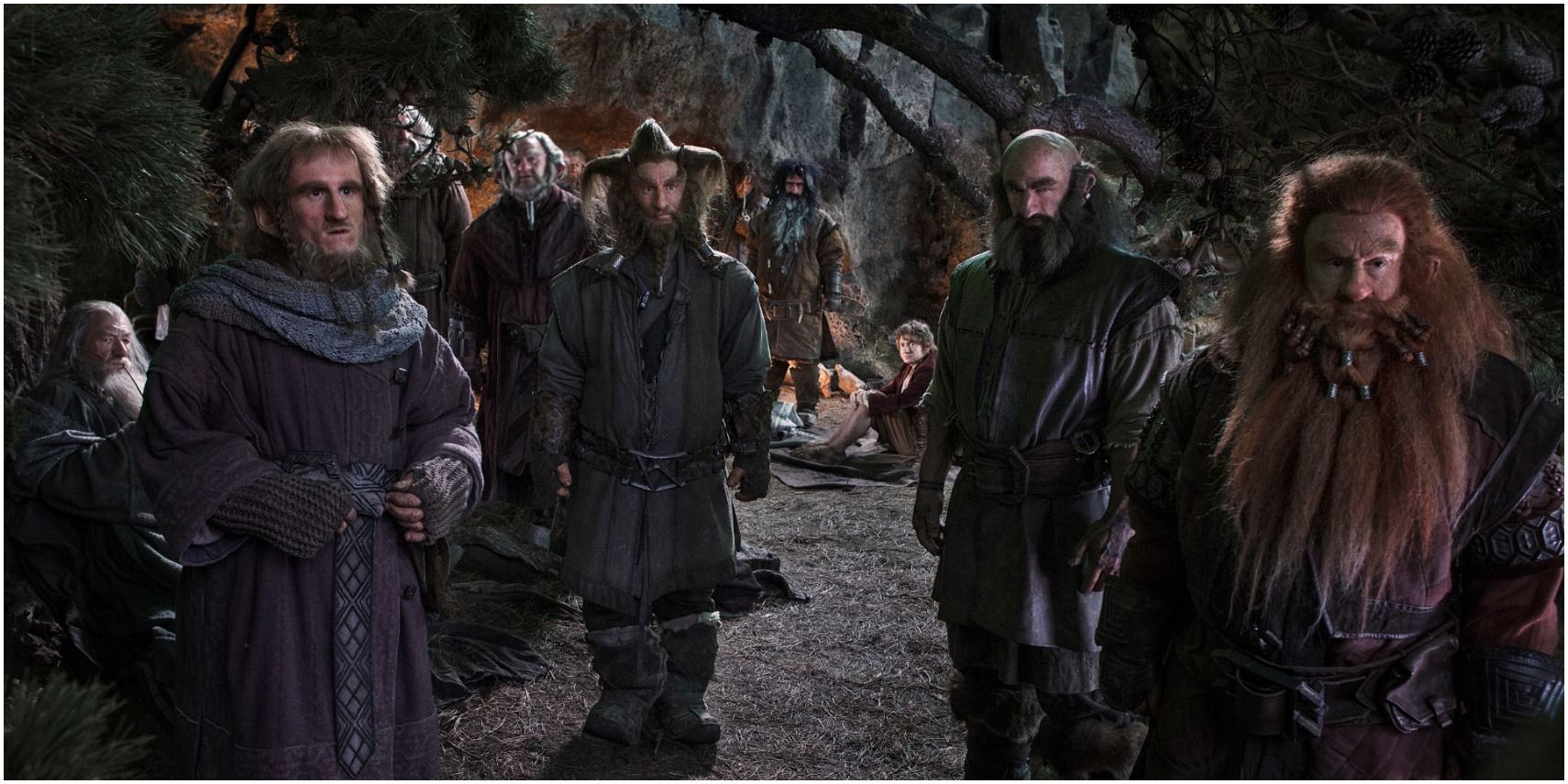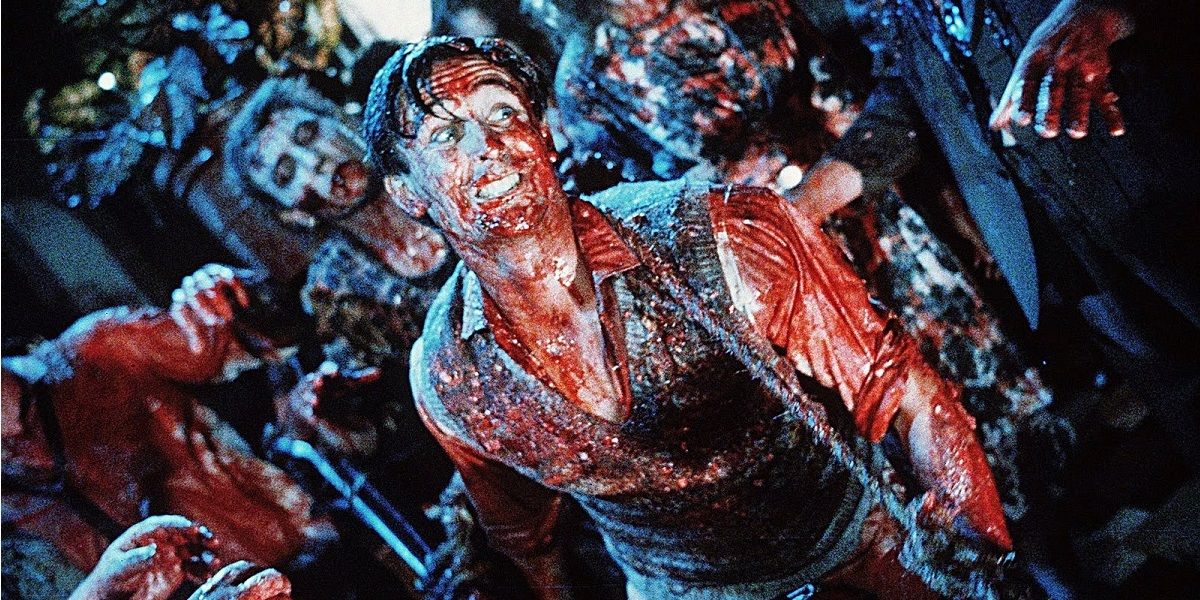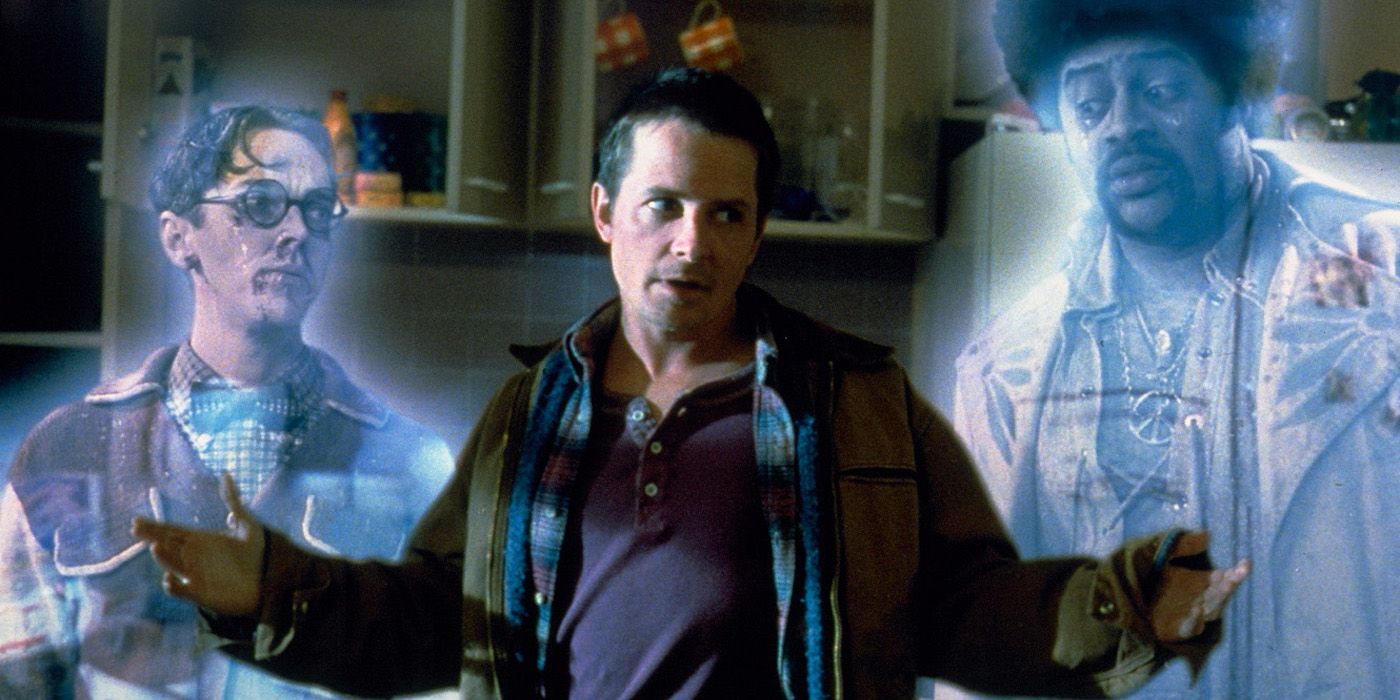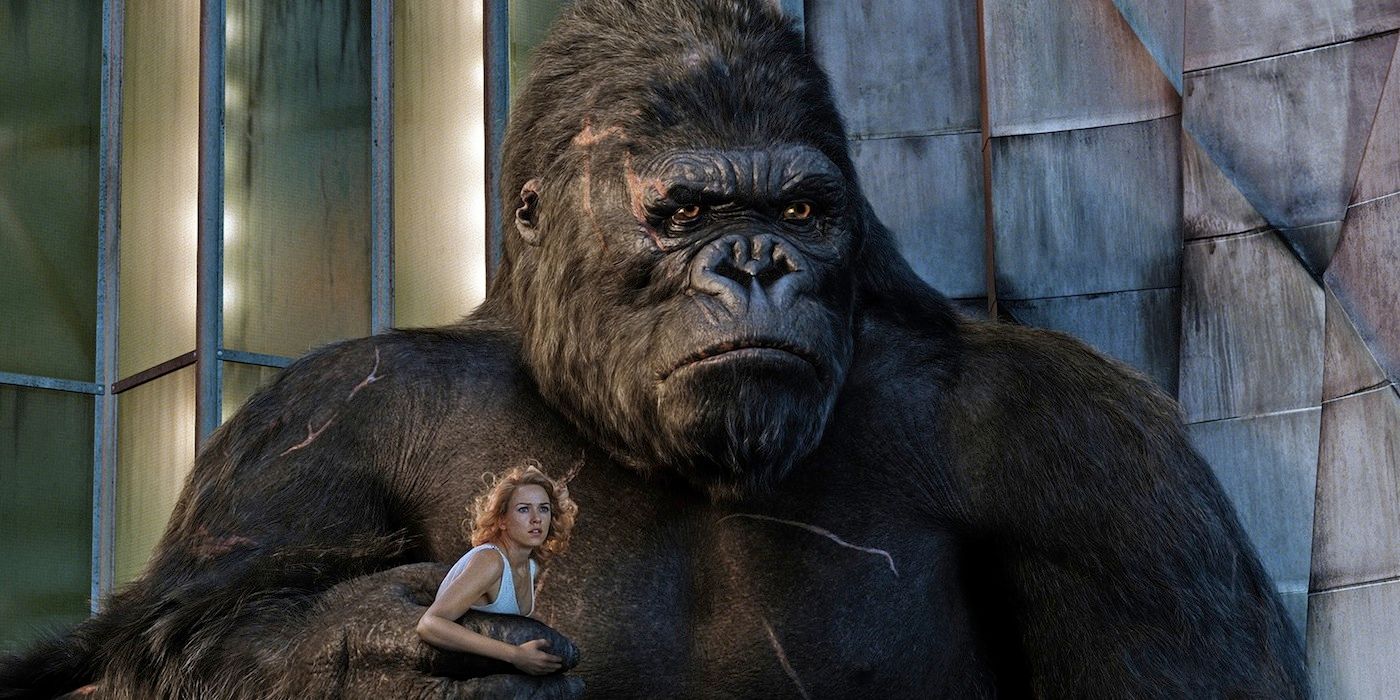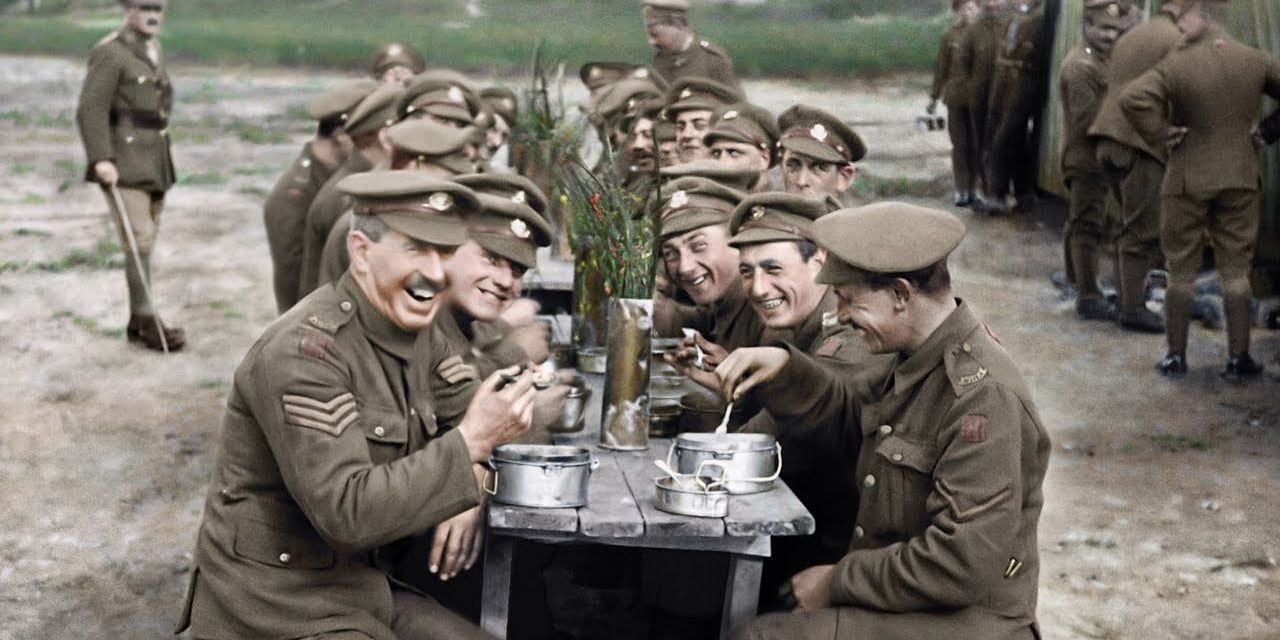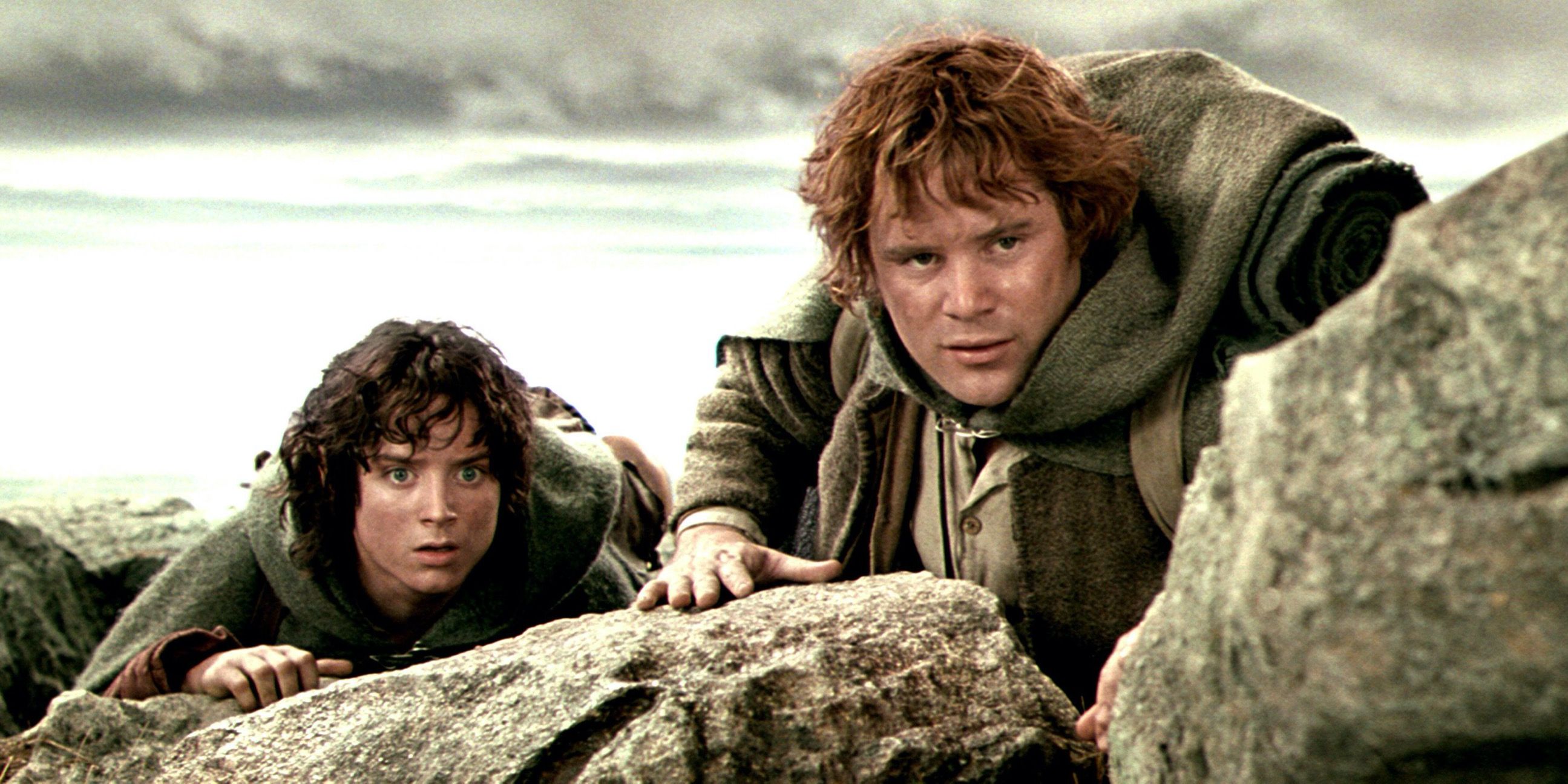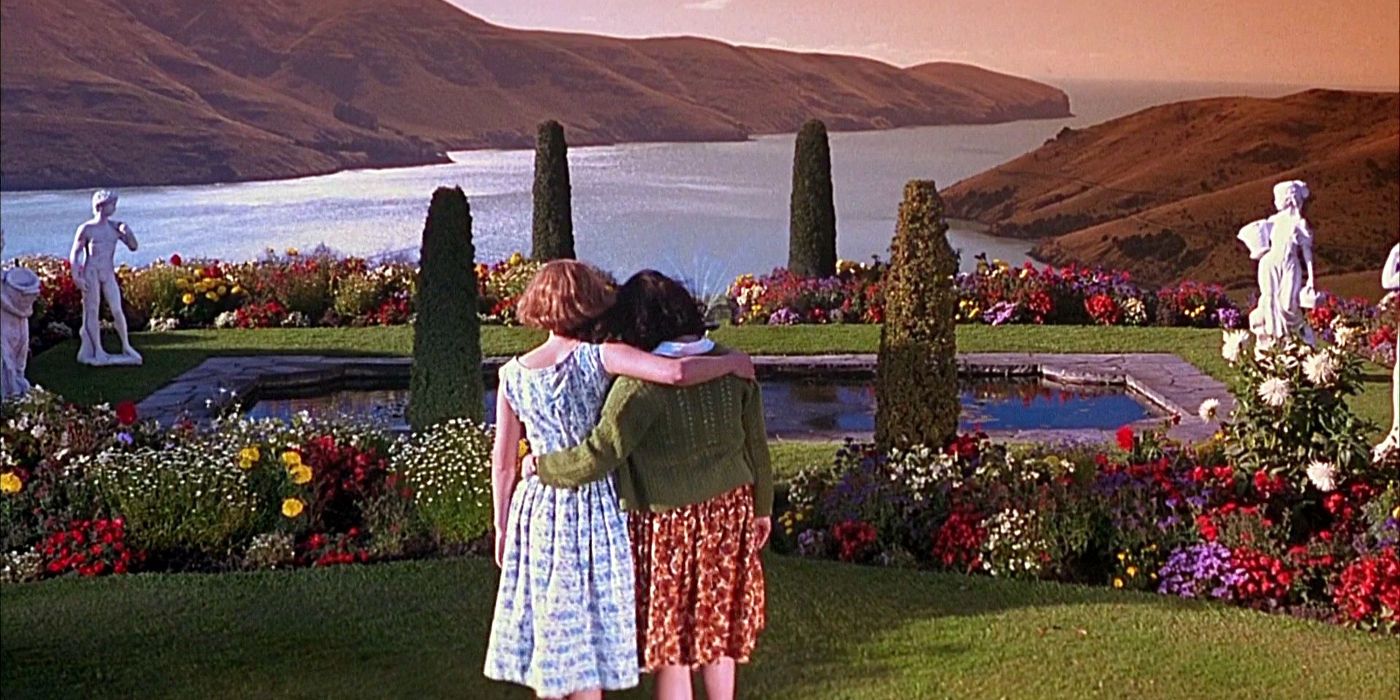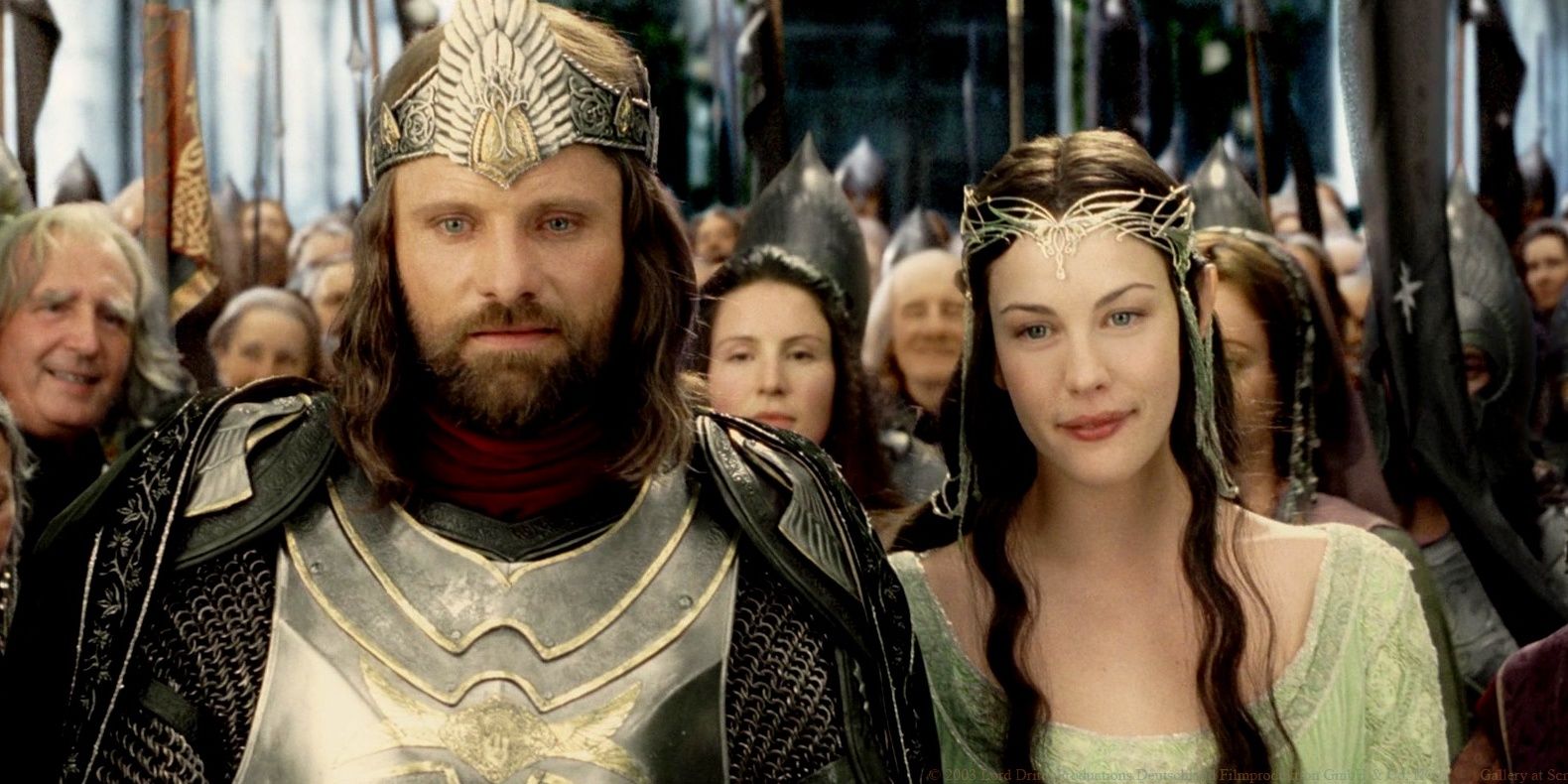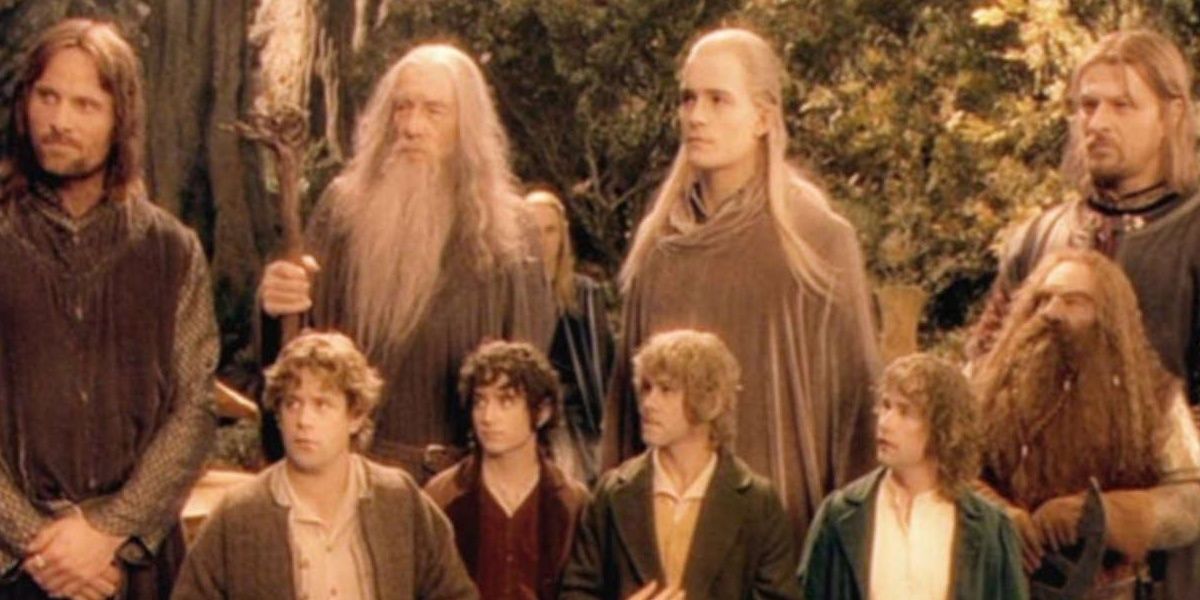It's not easy ranking Peter Jackson's films from worst to best. It's been 33 years since a young New Zealand director made a strong impression on the world of film with his low-budget horror movies that blended ultra-violence with politically-incorrect jokes. Since then, Jackson has evolved into one of the most profitable directors of all time, an Oscar-winning favorite who combined high-concept fantasy with the gloss of prestige and helped to usher in a new era of blockbuster cinema.
Since the gargantuan financial and critical success of The Lord of the Rings trilogy, Jackson’s standing with critics has taken a bit of a beating, especially after the messiness surrounding The Hobbit trilogy. That downturn, however, has not dented Jackson’s overall reputation, nor has it impeded his influence, both as a filmmaker and as a key figure of the blockbusters of the 21st century. The entire New Zealand film industry alone owes an insurmountable debt to him.
Not every film Jackson directed has been a success, however, and there are quite a few entries in his filmography that have not stood the test of time. The following is every Peter Jackson movie ranked from worst to best.
WORST: The Lovely Bones
Before Alice Sebold’s debut novel The Lovely Bones made its way to shelves the world over, Scottish director Lynne Ramsay began adapting the story for film with the intent of making an intensely bleak tale of familial grief. When the novel became a major best-seller and cultural milestone, the producers decided they wanted a bigger name at the helm who would adhere more closely to the magical realism of the source material. The end result was one of the most misguided literary adaptations of the century so far.
Almost everything about The Lovely Bones just feels wrong in execution. Jackson seems more interested in creating the achingly detailed world of murder victim Susie Salmon’s personal heaven than dealing with the trauma at the heart of the story. Some critics, most notably Roger Ebert, even accused him of romanticizing Susie’s rape and murder because of this, and it’s not hard to see how one would come to that conclusion. While Saoirse Ronan and Stanley Tucci are both predictably excellent in the movie, The Lovely Bones is the worst example of what happens when Jackson lets his penchant for VFX take priority over the basic tenets of storytelling.
The Hobbit: The Battle of the Five Armies
Truthfully, it would be easy to group together all three of the Hobbit movies here and call it a day. Fans had high expectations for this Middle Earth prequel given the stratospheric success of The Lord of the Rings trilogy, and Jackson bore the smothering weight of that anticipation after taking over director duties from Guillermo del Toro. What started out as an adaptation of a delightful children’s novel became a three-movie epic bloated beyond all comprehension that starved Tolkien’s work of its original heart.
The Battle of the Five Armies, the third film in the trilogy, is the worst example of this problem. Everything feels off, as if Jackson and company had run out of steam and all that enthusiasm for the material had dissipated. It's overlong, the central battle scenes are plodding and bereft of the magic of the Rings wars, resolutions are either abrupt or non-existent, and the ridiculous elf-dwarf romance between Tauriel and Kili would have been laughable if it weren't so insulting to one of the few major female characters in the series. The Battle of the Five Armies has nowhere to go because that battle is based on one paragraph in the book and the padding cannot fix that. For Middle Earth fans, it was a laborious and ill-conceived ending to a trilogy that never really got off the ground.
The Hobbit: The Desolation of Smaug
If Tolkien fans were optimistic about the future of The Hobbit following An Unexpected Journey, then it was with The Desolation of Smaug where things started to go off the rails. While it’s not the disaster that The Battle of Five Armies would turn out to be, the middle movie suffers from all the expected issues of being the stopgap of the trilogy. The spectacle is all there, but the hollowness beneath it all is more evident than ever. The movie's introduction of a love triangle didn't help matters either, providing the series with some of its most cringe-inducing moments. What stops the movie from being a write-off is Smaug himself, gamely played via motion-capture by Benedict Cumberbatch, who clearly had the time of his life in the role.
Bad Taste
Jackson made his debut as a director with the indie film Bad Taste, shooting on the weekends over the course of four years, using his mother's oven to make the special effects and keeping locations to his hometown of Pukerua Bay. Bad Taste did not delight the film industry of Jackson's native New Zealand, with one executive even speaking out to argue that perhaps their country needed fewer movies like Bad Taste. As with many low-budget directorial debuts, the film is seriously rough around the edges and feels like Jackson is flinging everything he has at the wall just to see what sticks. It is, of course, all in bad taste and full of off-color humor that still divides audiences (if you find a space agency having the initials AIDS hilarious then Bad Taste is the film for you). While the satire doesn't entirely work, there is a sharpness to the central plot of aliens coming to Earth to harvest humans for fast food. If nothing else, it’s fascinating to see the grimy origins of the man who would become a prestige darling in Hollywood.
Meet the Feebles
Long before The Happytime Murders wondered, “What if The Muppets was pointlessly adult and crude?” Jackson got there first with Meet the Feebles. Jackson's second feature film has won a cult following in the years following its initial commercial failure thanks to its deeply perverse and caustic parody of the wholesomeness of Jim Henson. The eponymous Feebles are a group of nihilistic, drug-addicted, and sex-addled puppets trying to get their variety show picked up for television. What follows is a cavalcade of rape, adultery, porn, drugs, Vietnam War flashbacks, and a shooting spree.
The film has its fans for how committed it is to its gonzo concept, but the big problem with Meet the Feebles is how aimless its nastiness feels. It’s not an especially good Muppets satire either, with the rough edges of the puppetry itself only barely concealed by the movie’s low budget. It does, however, have some cracking laugh-out-loud moments, such as one memorable song dedicated to the delights of sodomy.
The Hobbit: An Unexpected Journey
It would be false to claim that the first of the three Hobbit films is brilliant or anywhere near the level of The Lord of the Rings trilogy, but there's enough of that old familiar magic in there that audiences wondered if Jackson and company could pull this experiment off. The casting of Martin Freeman as Bilbo Baggins is still spot on, and the scenes of the elves celebrating together in his home are near-perfect recreations of the novel. It starts to get messier when the focus moves away from character and lore to the spectacle. Jackson's decision to shoot the movie at a higher frame rate made the film look oddly cheap and much less attractive than The Lord of the Rings trilogy made over a decade earlier. While there may be a lot here for purists to enjoy, for general audiences swept away by the beauty of Middle Earth, An Unexpected Journey felt oddly impenetrable and, dare we say it, mostly boring.
Braindead
Out of all of Jackson's low-budget gross-out early movies, it's Braindead that remains the peak of this period in his career. It's bigger, more ambitious, and way more disgusting! Close to thirty years later and the sheer glut of gore in Braindead remains startling, as well as hilariously inventive. In many ways, it is the true heir to Evil Dead 2, something that countless directors have tried to pull off over the years, but none with the panache or humor of Jackson. The special moments of the film lie in how inimitably "Kiwi" it is, especially in those scenes where bone-dry humor is contrasted with stomach-churning flesh and blood. Lots of blood. Jackson may have won more awards and acclaim with other films, but few moments exemplify his style quite like a Vicar giddily crying out, "I kick arse for the Lord!"
The Frighteners
Made after Heavenly Creatures and long before he made his way to Middle Earth, Jackson combined his grimy bad taste roots with a more polished Hollywood style with 1996's The Frighteners, a comedy horror that Sam Raimi would have been proud of. Michael J. Fox plays a traumatized widower who makes a living as a fake spiritualist despite his real ability to see ghosts, all of which lead him down a bleak path of solving a paranormal serial murder case while the residents of his small town think he’s responsible for it. While it doesn’t quite nail the frantic switching of tones that something like The Evil Dead or even Jackson’s earlier work can, what makes The Frighteners so interesting is its genuinely bleak nature, even amid the belly laughs, and Fox’s performance, which flips Marty McFly archetypes on their head and allows the actor to play to his weirder side.
King Kong
In terms of intent, Jackson’s intensely detailed extremely long remake of the Hollywood monster movie classic King Kong feels like his version of James Cameron’s Titanic, not so much because of plot or style but because of how it evokes each film-maker’s true love for the material in a manner that verges on obsessive, for better or worse. 2005’s King Kong is nowhere near as cohesive as Titanic or as successful in its aims, but its proud embrace of melodrama and wholehearted earnestness, even in the face of critical cynicism, feels very much cut from the same cloth.
The expansion of King Kong's characters from vague Golden Age archetypes into fleshed-out human beings is Jackson’s greatest addition to the story, as well as, of course, the monumental performance of Andy Serkis as Kong himself. The real chemistry he has with Naomi Watts’s Ann Darrow provides immense heart to the tale that is sorely needed. Alas, Jackson’s adoring stance towards the original leaves him blind to his own creation, so King Kong is about 40 minutes longer than it needs to be, and some plotlines are dropped altogether. The discomfiting depiction of the natives of Skull Island is also hard to ignore and somehow ends up being more regressive than the 1931 film in that regard.
They Shall Not Grow Old
Four years after The Hobbit trilogy came to a financially successful but critically maligned end, Jackson decided to take a complete U-turn with his next directorial effort. They Shall Not Grow Old is a documentary that uses little-seen footage from the First World War and brings to life the silent black and white images of the conflict. Through extensive archival work and restoration of footage that is now over a hundred years old, Jackson brings the past into the present through colorizing the films, adding sound effects and voice acting, and interviews with veterans. Jackson intended for the movie to show audiences what it was like to be a soldier during that time, from the camaraderie to the training to the battle scenes. The overall effect is hyperreal to the point of the uncanny, but that’s the point: Jackson wants viewers who have been desensitized by near-history through impersonal history lessons to feel the true echoes of the past. They Shall Not Grow Old may have its issues as a piece of cinema – and plenty of archivists have expressed their displeasure with how Jackson treated this historic footage – but as a technical experiment turned regaining of humanity in the aftermath of tragedy, it’s truly something special.
The Lord of the Rings: The Two Towers
It seems deceptive to rank The Two Towers this low, relatively speaking, because even though it is the weakest of the original trilogy, it is still undeniably an excellent movie. The action keeps moving in The Two Towers, even as it suffers from many of the middle movie problems in terms of pacing and plot. Still, those feel inconsequential compared to the thrill of Andy Serkis's revolutionary motion-capture performance as Gollum, Brad Dourif's wonderfully slimy turn as Gríma Wormtongue, and the revival of Gandalf the Grey as Gandalf the White.
Heavenly Creatures
Jackson landed his very first Oscar nomination for the screenplay of 1994's Heavenly Creatures, a psychological thriller based on the true story of two teenage girls, Pauline Parker and Juliet Hulme, whose intense friendship led them to murder Parker’s mother. Melanie Lynskey and Kate Winslet’s performances catapulted them into the public consciousness as their crackling chemistry fully conveyed the obsessive bond the girls had that has continued to fascinate New Zealand to this day. Heavenly Creatures smartly focuses on the friendship itself over the murder and ensuing trial, deftly teasing out the surreal allure of their bond and the fantasies it inspired. The whole movie has a hallucinogenic feel that allows you to sink into its deceptive brutality. With Heavenly Creatures, Jackson announced himself as a director that even the industry figures who despised his early efforts could not ignore.
The Lord of the Rings: The Return of the King
Everyone has made the jokes about the movie’s multiple endings and how long it gets dragged out over the course of 201-minutes (extended to 252 in the beautiful extended cut), but The Return of the King earns every second of its length and then some. It's a real crowning achievement, the intricately constructed climax to a vast world of subplots and characters awaiting their respective resolutions. The Return of the King has some of the biggest tear-jerking moments in the series, as well as its greatest scenes of pure acting power, such as Sam's unending devotion to Frodo and the continuing turmoil of poor Gollum. The movie famously won eleven Oscars, tying for the record for the most Academy Awards won by a single film, and it deserved every single one of them.
BEST: The Lord of the Rings: The Fellowship of the Ring
It’s easy to forget just how dazzling it felt to see The Fellowship of the Ring for the first time. A story that had been deemed unadaptable for decades felt fully lived-in and came to life in such a spectacular fashion thanks to Jackson and his team. His adoration for the source material and every minute detail is on display here; yet, The Fellowship of the Ring remains entirely accessible to Middle Earth novices. Helped along by an ensemble of perfectly-cast actors in even the smallest of roles, Jackson breathes such energy into something that could have been trite or delivered entirely with a knowing wink. This is wholehearted earnestness at its best, and its that emotional sincerity, that true belief that audiences will invest themselves into this mythic quest, that makes The Fellowship of the Ring so potent. A whole generation of future film-makers was born after this Peter Jackson film was released.

